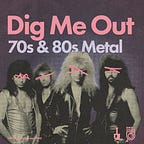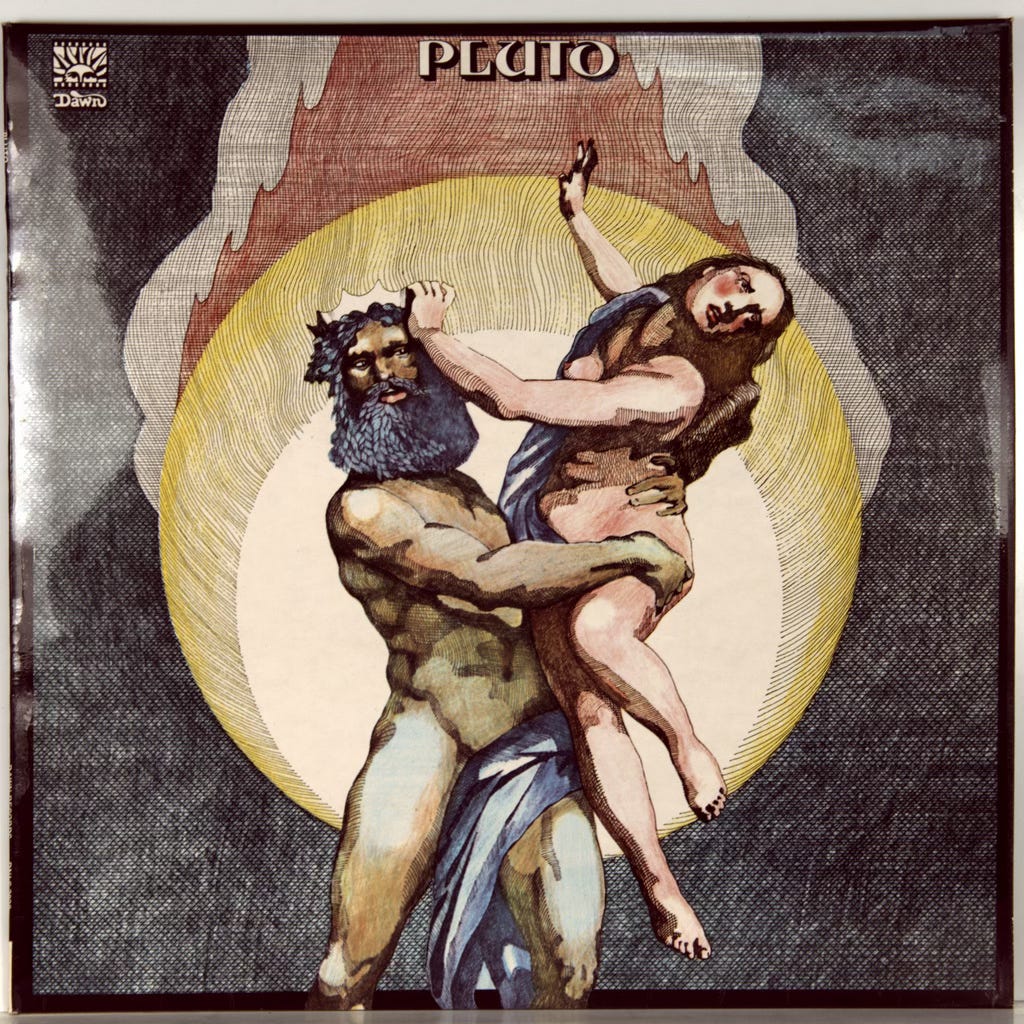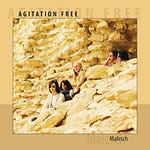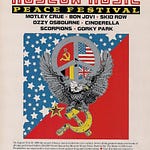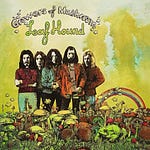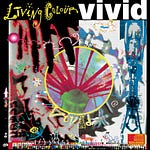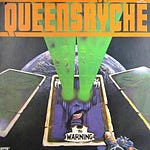Heads up, metalheads: you’re not lost—this is a special edition of the podcast, and we’re time-traveling back to the primordial soup of 70s rock! This week, you all went deep, voting Pluto’s self-titled 1971 album to victory in our October poll, edging out Trapeze, Julian’s Treatment, and Dr. Z in a heated runoff. Who says the most legendary records are the ones everyone’s heard of?
Got a band or buried gem you think deserves its day in the sun (or moonlight, or lava lamp glow)? Drop your album pick in the hopper, and you could put the next episode on the map—maybe even in another decade. Let’s keep digging, discovering, and debating… together.
You’re flipping through dusty vinyl bins at some record shop and tucked between Thin Lizzy and a forgotten soul record, there it is. That perfect ‘70s cover—equal parts cosmic and goofy. You pull it out, and you’ve never heard of them. Not once. How is that even possible?
Welcome to the rabbit hole of early ‘70s rock, where a million bands wrote killer songs, played festival stages with Genesis and T. Rex, and then… disappeared. Pluto is one of those bands. And their 1971 self-titled album? It’s a testament to everything that makes obscure rock so damn compelling.
Pluto came out of London in 1970, formed by guitarist Alan Warner—who’d actually been in The Foundations, the band behind “Build Me Up Buttercup.” Yeah, seriously. One minute he’s playing soul and R&B, the next he’s co-founding a heavy psych outfit with Paul Gardner on guitars and vocals, Michael Worth on bass, and Derrick Jarvis on drums. They even crossed paths with a young Rod Stewart during auditions, though he didn’t stick around.
The band opened for Pink Floyd, Genesis, T. Rex, and Thin Lizzy in their early days. These weren’t small gigs. But despite all that exposure, they couldn’t land a record deal. Labels kept saying “so close, so close,” but never pulled the trigger. When they finally released their self-titled album in ’71, it was UK-only—no American pressing, no mass distribution. And then they were gone.
Why didn’t they break through? The hosts of the Dig Me Out podcast had a theory: the vocals were just too pedestrian. When you’re competing with Robert Plant, Roger Daltrey, and Mick Jagger, you need a singer who can command a room. Pluto had solid players, tight grooves, and genuinely interesting songwriting. But they didn’t have that voice.
Space, Groove, and That Bass
Here’s the thing about Pluto, it doesn’t sound like it’s trying too hard.
In an era before massive distortion, endless compression, and face-melting solos became the standard, this album leans into dynamics and space. The guitars are clean, chimey, with just enough fuzz dropped in at the right moments to make you sit up. The production is raw but intentional, like the band set up in a room and just played.
And that bass? Chef’s kiss.
Michael Worth is constantly moving with melodic runs, little fills, never just riding root notes. In a mix where guitars are hard-panned and drums are dry, the bass holds everything together. It’s the glue. Without it, songs like “She’s Innocent” or “Stealing My Thunder” would fall apart. But with it? They groove.
Take “Beauty Queen.” Big drum rolls kick it off, guitars swelling in and out, bass dancing underneath. It feels alive in a way that overproduced records never do. Or “Mr. Westwood,” which meanders like a Neil Young deep cut but stays engaging because the rhythm section refuses to let you zone out.
The album doesn’t fit neatly into any genre—it’s been called hard rock, progressive rock, psychedelic rock, blues rock. Truth is, it’s all of those and none of them, because in 1971, those categories didn’t have firm definitions yet. Black Sabbath was just establishing heavy metal as a thing. Pluto existed in that moment right before the lines were drawn.
The Voice (and the Campfire Song)
If Robert Plant had sung on this album, we’d still be talking about Pluto today.
The vocals are fine. Competent. But fine doesn’t cut it when the music is this interesting. Alan Warner and Paul Gardner both wrote and sang their own songs, and while their voices aren’t bad, they’re not memorable. There’s no urgency, no fire, no moment where the vocal grabs you by the collar and demands attention.
The band seemed to know it, too. Six months after the album dropped, they released a single called “I Really Want It” with a different singer—John Gilbert—and it’s legitimately the best song in their catalog. The difference is night and day. Gilbert brought energy and presence the original lineup lacked. But by then, it was too late.
And then there’s “Ragabone Joe.” It’s quirky, almost campy—like a campfire sing-along dropped into the middle of a psych-rock record. The band later admitted they hated it. It’s the kind of track you’d probably skip if you were listening on vinyl, but it’s also weirdly endearing in its goofiness.
If you’re going to trim this record down—and honestly, you should—start with “Beauty Queen.” Big, bold, with swagger. Follow it with “She’s Innocent,” where the acoustic-electric guitar combo and fuzz leads hit just right. Keep “Road to Glory,” “Stealing My Thunder,” “Mr. Westwood,” and close with “Ragabone Joe” for the weird factor.
Cut “Crossfire,” “Down and Out,” and “My Old Rocking Horse.” They’re fine as background music, but they don’t demand your attention the way the back half of the record does. A tight six-track EP would’ve made this band legendary instead of forgotten.
The Vinyl Hunt
Here’s where it gets fun. The original 1971 pressing was on colored vinyl—ultra-rare for the era—and now costs $200+ for a very good copy. Near-mint copies? $400-500. But the reissues? Still available from UK labels like Music on Vinyl for around $30.
Or you could do what Chip from Dig Me Out dreams of doing: find a beat-up copy in some dusty record shop for eight bucks. Crackle and all. Because honestly, this album should sound a little worn. It should have hiss and pop. It should feel like it’s been sitting in someone’s attic since 1974, waiting for you to rediscover it.
That’s the magic of records like this. They’re not polished. They’re not perfect. But they’re real. And in a world where everything is overproduced and algorithmically optimized, that authenticity hits different.
Pluto never became Deep Purple. They never got heavier, never found their lane, never got the breaks. But they left behind one solid record that sounds like a band discovering what rock could be—before anyone told them what it should be.
It’s the kind of album you throw on while you’re doing other things. Cooking dinner. Flipping through old records. Scrolling aimlessly. And then a riff catches you, or the bass does something unexpected, and you stop. You listen. You wonder how the hell you’d never heard this before.
That’s the whole point of digging stuff out.
Songs in this Episode
Intro - Beauty Queen
08:47 - Build Me Up Buttercup (The Foundations)
14:42 - Crossfire
16:04 - She’s Innocent
18:48 - Mister Westwood
23:45 - And My Old Rocking Horse
24:27 - Down and Out
25:19 - Stealing My Thunder
30:18 - Down and Out
41:09 - I Really Want It Outro - Rag a Bone Joe


